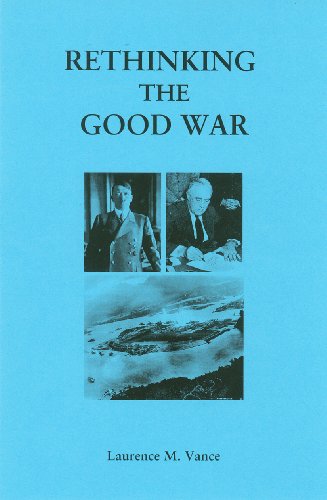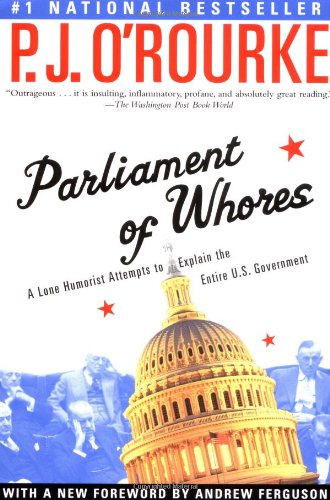“There are three parties in the House: Democrats, Republicans, and H.R. Gross.” ~ Gerald Ford
Congressional representative and medical doctor Ron Paul is often ridiculed with the epithet “Dr. No” because of his regular “no” votes in Congress when it comes to spending the taxpayers’ money. But before there was Dr. No, there was Mr. No. Harold Royce (H.R.) Gross died on this date in 1987. He was a thirteen-term Republican member of the U.S. House of Representatives from Iowa’s third district. Unlike John McCain, Gross was a real maverick who often bucked House and Party leaders, presidents of both parties, and his fellow Republicans. In addition to being dubbed “Mr. No” by the conservative weekly Human Events in 1969, Gross was also known as the “Watchdog of the Treasury,” the “Abominable No-Man,” and the “Useful Pest” as he questioned any and all spending bills in his fight “to save this country from national bankruptcy.” He often began his speeches by asking: “How much will this boondoggle cost?” For his general legislative obstructionism, Life magazine considered him a member of the “Neanderthal Right” while Redbook listed him as among the worst members of Congress. First elected to Congress in 1948 after defeating the incumbent member of his own party in the primary — without the help of the party — Gross went on to win the general election in a year when President Truman carried Iowa and a Democrat ousted a Republican in the Iowa Senate race. In the Democratic landslide of 1964, Gross was the only Republican House member from Iowa to retain his seat.
 Rethinking the Good War
Buy New $5.95
(as of 12:45 UTC - Details)
Before entering Congress, Gross served in World War I and then worked as a journalist (1921—1935) and radio newscaster (1935—1948). After his retirement from Congress in 1975, he remained in Washington DC. He is buried in Arlington National Cemetery. Gross has been described as curmudgeonly, sarcastic, frugal, scornful, and straight-talking. He didn’t hesitate to disregard, inconvenience, infuriate, or embarrass his colleagues. He was immune to criticism and ridicule. He was a fiercely independent, austere fiscal conservative with a tart tongue who often incurred the wrath of his colleagues. State Republican officials once branded him a “radical leftist.”
Rethinking the Good War
Buy New $5.95
(as of 12:45 UTC - Details)
Before entering Congress, Gross served in World War I and then worked as a journalist (1921—1935) and radio newscaster (1935—1948). After his retirement from Congress in 1975, he remained in Washington DC. He is buried in Arlington National Cemetery. Gross has been described as curmudgeonly, sarcastic, frugal, scornful, and straight-talking. He didn’t hesitate to disregard, inconvenience, infuriate, or embarrass his colleagues. He was immune to criticism and ridicule. He was a fiercely independent, austere fiscal conservative with a tart tongue who often incurred the wrath of his colleagues. State Republican officials once branded him a “radical leftist.”
 Parliament of Whores: ...
Best Price: $1.09
Buy New $7.62
(as of 10:49 UTC - Details)
Although he was certainly no leftist, what a radical he was. Unlike modern-day Republicans who just profess to favor smaller government, Gross criticized foreign aid, congressional junkets, pay raises for legislators and government workers, double-dipping of retired military personnel, congressional spending bills, the deficit, the national debt, lavish congressional entertainment expenses, the New Deal, the Pentagon, NASA, and the Marshall Plan. He had special contempt for government funding of any arts or humanities programs. Gross disapproved of the expense of President Kennedy’s inauguration, opposed a government pension for Kennedy’s widow, and even questioned the use of federal funds to pay the gas for the dead Kennedy’s eternal flame. The United Nations was the “Tower of Babel.” The Peace Corps was a “utopian brainstorm” reminiscent of Hitler’s youth corps. Uncle Sam was “Uncle Sucker” or “Uncle Sap.” The Korean War was “Operation Killer” that needlessly slaughtered American youth. He regretted voting “present” rather than “nay” on the Gulf of Tonkin Resolution. Gross’s foreign policy views were described as “isolationist.” If Gross had one weakness it was his support for agricultural appropriations. He had once edited the Iowa Union Farmer and had a reputation as a “populist advocate for farmers.” But hey, there is only one Ron Paul. Gross rarely missed a House roll call vote. He could often be found listening to speeches in the House chamber between votes. And unlike most current members of Congress, he actually read the bills he was voting on. Gross wrote and published a weekly newsletter (“On the Capitol Firing Line”) to keep his constituents informed about unnecessary government spending or the condition of the economy. He personally read and answered letters from his constituents, but did little to bring federal programs home to his district. H.R. Gross was an enigma. The usual truths about the U.S. Congress don’t apply to him. Humorist P. J. O’Rourke once described Congress as a “Parliament of Whores.” Lew Rockwell maintains not only that the institution is fundamentally evil, but that “most senators and congressmen make mafia capos look good.” Mark Twain remarked that “it could probably be shown by facts and figures that there is no distinctly native American criminal class except Congress.” Like Ron Paul, H.R. Gross is one of the few exceptions to these general rules. May he rest in peace.
Parliament of Whores: ...
Best Price: $1.09
Buy New $7.62
(as of 10:49 UTC - Details)
Although he was certainly no leftist, what a radical he was. Unlike modern-day Republicans who just profess to favor smaller government, Gross criticized foreign aid, congressional junkets, pay raises for legislators and government workers, double-dipping of retired military personnel, congressional spending bills, the deficit, the national debt, lavish congressional entertainment expenses, the New Deal, the Pentagon, NASA, and the Marshall Plan. He had special contempt for government funding of any arts or humanities programs. Gross disapproved of the expense of President Kennedy’s inauguration, opposed a government pension for Kennedy’s widow, and even questioned the use of federal funds to pay the gas for the dead Kennedy’s eternal flame. The United Nations was the “Tower of Babel.” The Peace Corps was a “utopian brainstorm” reminiscent of Hitler’s youth corps. Uncle Sam was “Uncle Sucker” or “Uncle Sap.” The Korean War was “Operation Killer” that needlessly slaughtered American youth. He regretted voting “present” rather than “nay” on the Gulf of Tonkin Resolution. Gross’s foreign policy views were described as “isolationist.” If Gross had one weakness it was his support for agricultural appropriations. He had once edited the Iowa Union Farmer and had a reputation as a “populist advocate for farmers.” But hey, there is only one Ron Paul. Gross rarely missed a House roll call vote. He could often be found listening to speeches in the House chamber between votes. And unlike most current members of Congress, he actually read the bills he was voting on. Gross wrote and published a weekly newsletter (“On the Capitol Firing Line”) to keep his constituents informed about unnecessary government spending or the condition of the economy. He personally read and answered letters from his constituents, but did little to bring federal programs home to his district. H.R. Gross was an enigma. The usual truths about the U.S. Congress don’t apply to him. Humorist P. J. O’Rourke once described Congress as a “Parliament of Whores.” Lew Rockwell maintains not only that the institution is fundamentally evil, but that “most senators and congressmen make mafia capos look good.” Mark Twain remarked that “it could probably be shown by facts and figures that there is no distinctly native American criminal class except Congress.” Like Ron Paul, H.R. Gross is one of the few exceptions to these general rules. May he rest in peace.






